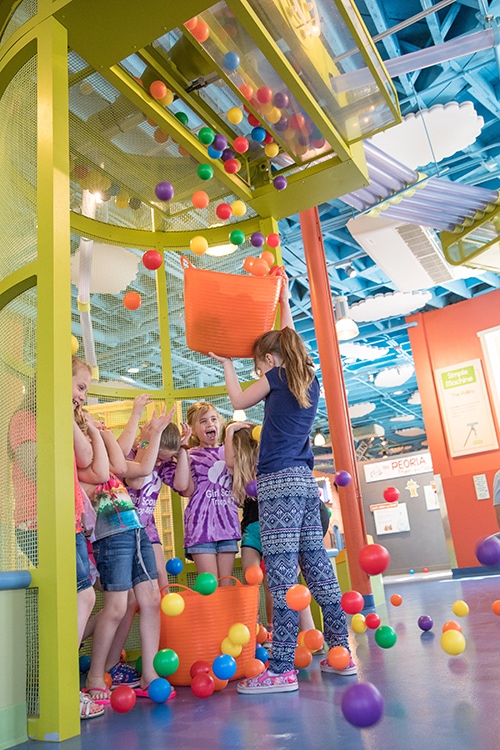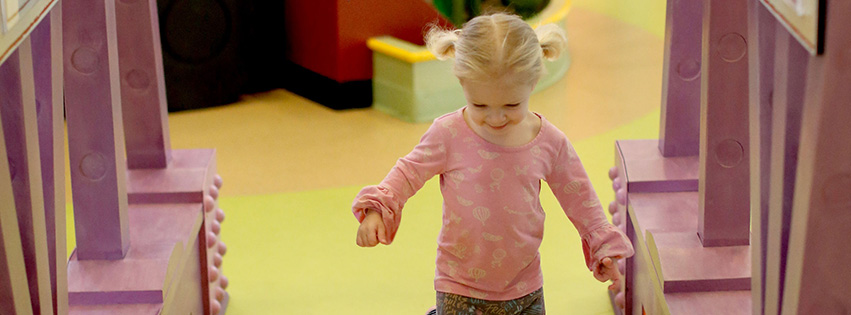Think back to your own childhood, when you were five or six years old. What did you play? Where did you play? Who did you play with? What were your favorite games and toys?
Now imagine a childhood without play.
It’s hard to do. In fact, play is so essential for children’s health and wellbeing that it has been recognized by the United Nations as a human right. Play is much more than fun and games for children—it’s how they learn and grow.
Growing Barriers To Playtime
Research demonstrates many ways that play is essential for health and learning. For example, one study shows that children who play for at least one hour per day are better able to think creatively and multitask. Other studies reveal that children who have the opportunity for free play during the school day can focus better during class time. Play stimulates brain growth and is related to better memory and social competence. Children in Head Start programs who play outdoors have lower body mass index (high body mass index, or BMI, is associated with obesity).

Overall, research tells us that play builds healthy brains and contributes to the development of cognitive, social and motor skills. When children do not play, their stress levels are higher and they are more likely to have attention-deficit/hyperactivity disorder.
Today, however, barriers to play time are growing. Some children do not have access to safe spaces for play—or parents with the leisure time to play with them. Others lead overscheduled lives filled with homework and structured activity. Children spend hours each day in front of screens. As a result, they are literally losing play time—in the last two decades of the 20th century, children lost 25 percent of their playtime, or 12 hours per week.
In 2018, out of concern that playtime is shrinking for children across the economic spectrum, the American Academy of Pediatrics published “The Power of Play: A Pediatric Role in Enhancing Development in Young Children.” This report shares research demonstrating the essential nature of children’s play, and encourages pediatricians to become advocates for play in their communities. Over this past year, staff from the Peoria PlayHouse Children’s Museum and OSF Children’s Hospital gathered to discuss this report. These conversations led to a new initiative, Prescription for Play, launching in January 2020.
Creating Space For Play
Through Prescription for Play, OSF pediatricians and pediatric residents will assess and identify play deprivation, and prescribe play to families of children who need more playtime. They will offer free visits and reduced-price memberships to the Peoria PlayHouse Children’s Museum, which provides a vibrant, welcoming and educational play space for all families. Families will also get to select a free toy from the PlayHouse gift shop—in order to bring play home.
This program offers children and families direct access to play through admission to the PlayHouse, which many families may not know about or feel is an option for them. It educates parents, conveying the importance of play for their children’s health. And it transforms the mindsets of future doctors, going beyond traditional medical training by encouraging pediatric residents to think about the consequences of and solutions for play deprivation.
One of the pediatricians spearheading this initiative is Terry Ho, a doctor with OSF and a member of the PlayHouse Advisory Board. According to Dr. Ho, “Research demonstrates that developmentally appropriate play with parents and peers promotes the social-emotional, cognitive, language and self-regulation skills that build executive functions and develop the brain. Furthermore, play supports safe, stable and nurturing relationships that children need to thrive.
“As someone who was born and raised and is now a pediatrician for OSF in Peoria,” he continues, “I can’t think of a better way to give back to the community then working with the Peoria PlayHouse Children’s Museum… to focus on the importance of play and playful learning in the healthy development of children.” PM




